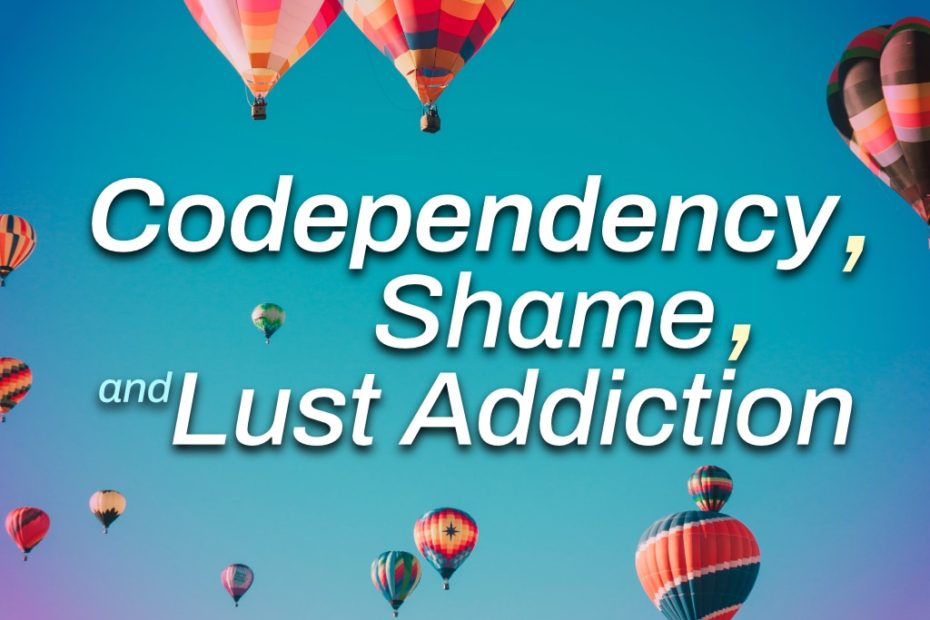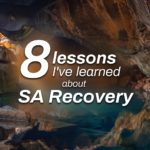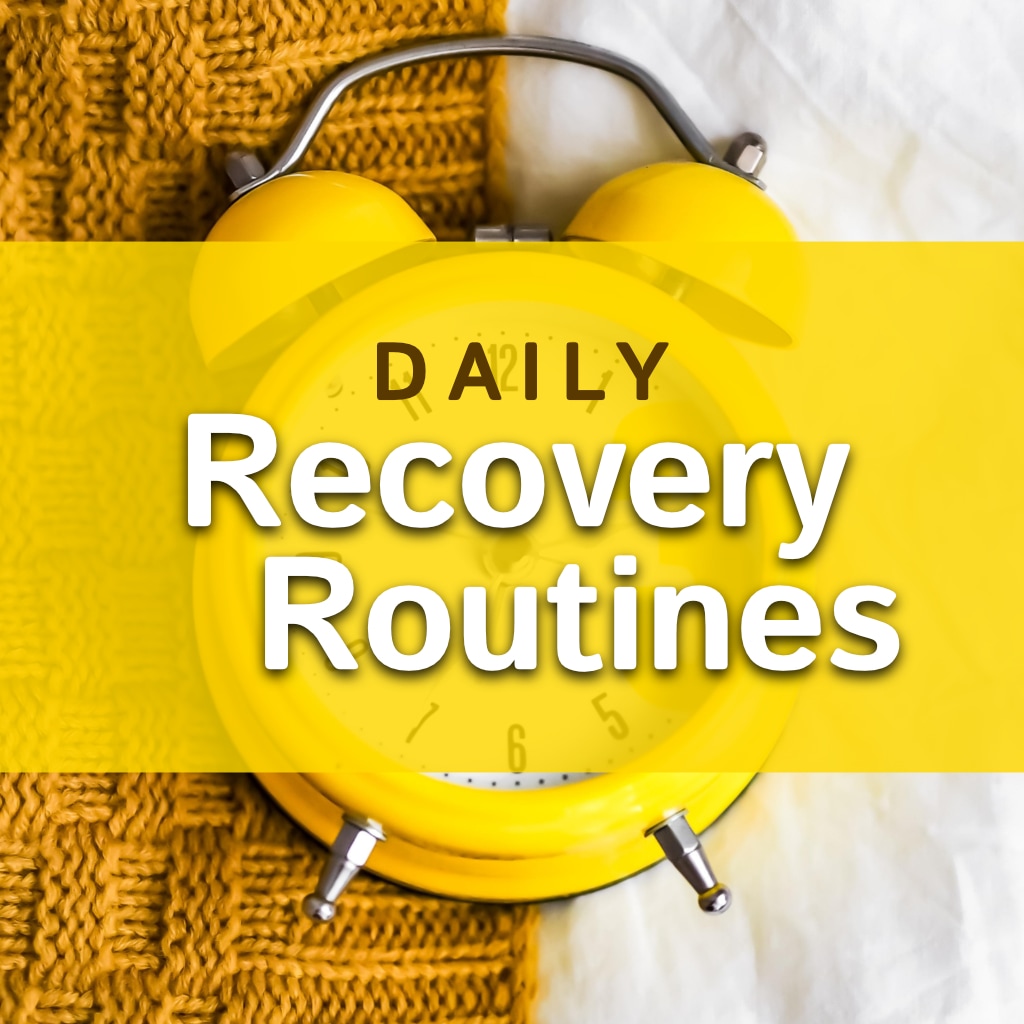? Psst… This is more of long-form resource than a quick read, so feel free to come back and read it piece by piece on your own time.
ℹ️ Prepared for print by Michoel S
“We became true addicts: sex with self, promiscuity, adultery, dependency relationships, and more fantasy. (“The Problem” – WB p. 203)
Hey everyone!
It’s Esther again, and – surprise – I’m still a lustaholic.
By now you’ve all heard of many of my struggles, but one is by far the most difficult:
CODEPENDENCY
From what I’ve seen, it seems like every addict struggles with some form of codependency. My codependency is such a big problem that for a while I tried focusing on only working on it instead of on lust! But in the end, I’ve found that working a strong SA program has worked wonders for my codependency.
But before we get there, I feel like we should start at the very beginning:
What is codependency?
“Codependent” literally means “twice dependent”. Being dependent on someone means I have a need for them in some way. Being co-dependent means I tend to develop two-way needy relationships with pretty much everyone I meet.
Here are some facets of codependency:
- I feel responsible for everyone and everything
- I constantly feel tons of guilt and shame
- I absorb other people’s feelings and feel responsible for them
- My focus is always on other people and their problems (trying to fix them, unwanted advice, etc.)
- I act like a martyr: I give without receiving, and then feel angry, resentful and taken advantage of.
- I do for others even at tremendous cost to myself – time, mental and physical health, finances, and so on.
- I’m a total people-pleaser – always afraid of disappointing or upsetting anyone
- I have great trouble setting boundaries and being assertive
- Intimacy, open communication, and trust are very difficult
- I’m extremely self-critical
- I’m a perfectionist and can never do things well enough
- I crave predictability, structure, and certainty, but never get it
- I tend to overwork and overschedule myself
- I ignore my own feelings and needs, and instead numb them with something – whether it’s food, alcohol, lust, movies, shopping, etc. You get the idea!
That tricky thing is that on the surface, codependency looks like I’m always super nice and giving. What’s wrong with that?
A lot.
As a codependent, I’m not actually trying to help people at all! I’m instead doing “nice things” to cover my own feelings of shame and inadequacy. To prop up my non-existent self-esteem. To quiet the internalized voices of my family that yell how worthless I am. And if I have nobody to help, I feel worthless and miserable again. I’m using giving itself as a drug! And it takes over and destroys my life.
Here are some examples:
Codependency in my life
There are two kinds of codependents: “Followers” who look to others to fix all their problems for them, and “enablers” who spend their entire life trying to fix everyone else’s problems. I fall squarely into both of these camps.
For example, some time after I joined SA, I had a small party at my house over the weekend. I did all the cooking. My nephew, niece, and some other friends were over. My ex was entertaining everyone. Another one of my friends was serving the food.
In the middle of all this whole happy scene, I felt totally empty. I looked around the busy room, and nobody needed me! So I ran to my room and burst into tears. One of my friends came to check on me after a few minutes. I told him “What am I doing here? I have no purpose!”. He said I should just sit and enjoy the party I had prepared, but I couldn’t do it – I wasn’t doing anything for anyone at that moment, so I felt useless. And worthless.
My codependency is rooted in shame: I don’t feel good enough. And the only way I knew to be worthwhile was to do things for others.
Codependency and shame
So much of my codependency is tied to internal shame in my mind. Here’s a quote I found that illustrates it for me really well. Although it’s a little long, I relate to it so much that I feel it’s important to include it here in full:
Internal Shame and Codependency
“As Darlene Lancer has pointed out in her book, Conquering Shame and Codependency, many of the symptoms of codependency are either caused by shame or are defenses to feeling shame.
“For people with codependency, the sense of not being a “good” person, or of not being “good enough,” or of not living up to their own standards can be a deeply rooted feeling that often stems from repeated childhood incidents and experiences.
“In fact, most codependents grow up feeling ashamed of their wants, feelings, and/or needs, often due to emotional abandonment experienced as children. As adults, they then often devalue and deny those wants, needs, and feelings in order to avoid their own shame.
“If childhood shame has never been addressed or examined from the perspective of an adult, it all too easily acts as a trigger just waiting for something in life to bring all those feelings of shame roaring back to the surface.
“This constant or ever-present shame – sometimes referred to as toxic shame or internalized shame – prevents individuals from being able to feel loved, respected, appreciated, or happy. They simply cannot accept these feelings, as they see themselves as not being worthy of these positive life experiences.
“This inability to allow oneself to feel these positive emotions due to the constant message of their own internal shame playing like a looped tape in their own minds is what leads to low self-esteem, the need to always be better or be “perfect,” the desire to control oneself and others, the need to constantly take care of and please other people, and, quite often, addiction as a means of controlling, denying, or diminishing those shameful feelings.
“Given this link between codependency and shame, it should be apparent that recognizing, acknowledging, and working through our own internalized shame is the first step towards reclaiming our relationships and our lives.
“We need to overcome our internalized shame before we can learn to set healthy boundaries, be assertive about our needs, and avoid pleasing others at any cost.”
To recover from codependency, I need to face, deal with, and get relief from my many sources of shame. Fortunately this is one area that SA is especially good at 🙂
Codependency & Lust
In my acting-out years, my life was packed with lustful situations that my codependency made even worse. My lust would force me to start relationships, and then my codependence would keep me trapped in them for months.
One of my main MOs was getting boyfriends who didn’t have a job. They were basically bums who would stay indoors all day. I could control them – make up schedules for them, and tell them what to do – or not do. If they just hung around all day, I could get my sex-drug from them whenever I wanted it. In these relationships I was abusive and controlling. I was so codependent I made them need me. I made them need me so I could always have them around when I needed my lust fix.
In the past, in every relationship I either “wore the pants”, or was totally passive and abused. Like most codependents and addicts, I struggle with balance.
How codependency affects me
When I’m actively codependent, I tend to push myself way too hard. And then I burn out, and wind up physically and emotionally sick in bed. And then to escape that I end up binging on movies for days.
My attempts to caretake and control caused massive resentments. Before program, I could never share them directly with the relevant people, so I had to act out sexually to relieve that inner pressure instead.
My codependency caused me to resent the people I was with, and I’d feel it. I felt shame, and I resented both that shame, and the person that caused it. And eventually, those resentments would build up until they strangled relationship after relationship.
So codependence has been one of the greatest problems in my life.
How SA helps with codependency
The opposite of codependency for me is – “being able to depend on God and myself in a healthy way”. The SA program has helped me do that.
While the primary purpose of the SA program is to “stay sexually sober and help others to achieve sexual sobriety” (The Problem), working the Steps, tools, and living the program’s way of life has helped a lot with my codependence. Here are some of the tools that have helped me:
- Talking to and listening to my sponsor
My sponsor is one of the best tools in my recovery. I work with her much more often than with my therapist, and she got to know the details of my life really well.
On my own, I tend to get lost in my head a lot. When codependent situations come up, I try to cope with them from my own unhealthy perspective. I see things only through my own eyes.
To recover from lust, I needed to share all of my life details with my sponsor. I needed to listen to her and follow her directions. And – surprise – she saw my codependent life situations from a very different angle! As I shared about my life with her, I came to see things as she saw them. This gave me a lot more awareness of my problem. We discussed these situations, and she showed me healthier ways to behave. - Work on my internalized shame
Underneath my codependence is shame. As a child, I was often abandoned and ignored. I felt that if the adults in my life ignored me, I must truly be unimportant. My needs were not worth the attention of these “higher powers”. And so I felt shame at having any needs at all. My inner feelings of worthlessness spring in part from these old negative emotions.
When working the Steps, my sponsor taught me to do a Shame Inventory. This inventory totally changed my life. It’s sort of like the other Step 4 inventories, only you list the thoughts, memories, and actions you’re ashamed of instead.
I love taking something I’m shameful about and recognizing “how God would want me to feel”. In this way I can replace my old ways of thinking with new perspective shaped by my loving Higher Power.
- Learning self worth with my Higher Power
The core of my dependence and caretaking is that old feeling of worthlessness inside. The only way I could feel worth was by doing things for other people.
When I worked Step 2, I found that my previous concept of God was actually a crude mishmash of all the powerful people in my life. I threw out those old ideas and got a new Higher Power who loves me no matter what. I am perfectly worthwhile in his eyes. I wrote new prayers expressing my relationship and value in the eyes of my Higher Power. I say these every morning.
Because of all this Step 2 work, my worth doesn’t come from other people anymore. I don’t need them to justify my existence. I could finally start feeling that I don’t need to help or deal with anyone else in order to have worth. And for the first time I could consider setting boundaries with them.
I wrote affirmations on my mirror with a whiteboard marker: “You are worth it. You are loved. You matter. You are beautiful – inside and out”. This gives me something to smile at every morning.
- Setting Boundaries
I used to have no boundaries at all. If anyone asked me to do anything for them, I would do it. I needed to. I couldn’t say no. There are many dysfunctional and controlling people and relatives in my life, but I just couldn’t push them away.
As I grew internally through working my program, I slowly became able to start putting up boundaries. Putting up boundaries with my family has completely changed my life.
Setting boundaries with people is hard. A lot of people did not respect my new boundaries at first, as they were so used to running right over me. I had to cut certain people out of my life entirely. It took a lot of often but firmly repeating that I don’t do that anymore, or go there, or do these things for people when they can do them themselves. This is so exhausting, but so worth it.
Eventually people learn. My family has finally stopped driving me crazy about seeing my brother. And people have been learning to respect the new me.
With every boundary I put up, I felt better. This made me want to put up more boundaries.
- Self-care – Doing things for myself.
If I’m a worthy person, I deserve to be taken care of. I can take care of myself! I need to specifically take time out of my schedule to take time to care for myself. Otherwise it won’t happen. For a while all I had in my life was work and program!
I needed to take better care of myself. And so I’ve started doing things like taking a day off from work to clean up my house and make it look respectable. And I’ve started going to a weekly movie night, where I can let go of the stress of my week.
- Talking things out with people.
In program I learned to share a lot with people, both inside and outside SA. I don’t only share about lust – I share about all of my life, and get feedback about situations I’m unsure about. This helps untangle what’s really going on and can give me clarity as to how I should act.
I have one friend in particular from outside program who also struggles with codependency. We’ve worked very closely together, and often discuss situations as they come up, and how to deal with them. Having specific people who know me very well is very helpful, as what could be a healthy behavior for someone else could be a super codependent thing for me to do, and so on!
While I get advice from many people, I don’t need to automatically do what any random person tells me. But I make sure to consider what they have to say. - Trust your gut.
Program has given me much better insight into what’s healthy behavior and what’s not. I’ve learned that when I feel uncomfortable with a situation, something’s probably wrong. In these situations, I can hop on the phone and get the advice of my sponsor or another sober member. “Should I be doing this?” I can trust my instincts – if something feels wrong, it probably is.
- Shifting my focus
I used to think that if someone asked me to do something – I had to do it. And if I committed to something and it was much harder than I thought, I had to do it anyway, regardless of what it cost me.
The program has taught me to reframe. I now ask myself “do I want to” instead of “do I have to”. If a commitment is too much for me, it’s OK to reconsider it. Pushing myself too hard just to avoid disappointing someone is not the way my Higher Power would have me treat myself.
It’s hard to face that fear of disapproval, but doing so gives me the freedom to drop old commitments that no longer make sense.
- Building awareness
Much of what I do isn’t codependent. The more awareness I have around the topic, the more I can catch myself when I’m slipping into codependent ways of behaving again.
To find out more about codependency, I read. There are many helpful books, online articles, and even literature from other programs that help me see the problem more clearly. - Prayer
Every morning I do my morning routine, which includes informal prayer to my Higher Power. It grounds me. It “tunes me in” to myself.
One of the things I do is list the character defects that I’m struggling with at the time, and pray that my HP replace them with their positive opposites instead.
For example: “God please remove my codependency and replace it with being able to depend on myself, depend on God, and be able to give to others in a healthy way.
Please take away my self-pity and the feeling of uselessness, and give me a healthy self esteem. Please help me learn to love and accept myself” - Being present
By default, I don’t think. I just do. And when I react without thinking, I’ll do what comes natural to me – my old patterns of behavior.
To live my “new way of life” I need to stop and think and feel. Take a moment to be self aware. Being present gives me some safe moments where I can consider the situation and decide how to proceed.
It’s hard to be present in the middle of an intense situation, but when I do it it helps me make more sane choices instead of being pushed around by my old habits. - Other programs & tools
There are a number of “outside tools” that have also helped me. For a time I joined a different 12-Step program that specialized in this specific problem. (I actually had to leave because of my codependency, but that’s a story for a different time ?). I have friends I discuss these things with regularly. And of course my therapist has been instrumental in working on the situations that seem to keep coming up again and again.
How to give without being codependent
Sometimes it’s tricky to figure out whether I’m genuinely trying to be of service, or whether I’m actually being insecure and seeking approval. Real giving is a beautiful thing when I do it from a healthy place. How can I tell the difference?
Here three questions I ask myself to make sure my giving is done in a healthy way:
- “Am I using this giving action to fill me up instead of my Higher Power?
Am I trying to “get my life force” solely from this? Do I feel a compulsive NEED to help this person? Do I feel like I’ll fall apart or be useless if I don’t take this action? If I NEED to do this, chance are it’s unhealthy. - “Will this action make me neglect myself?
My self care is extremely important. If I’m pushing my needs down to help others, it’s likely a codependent situation. - “What would God want me to do in this moment?
When I bring questionable situations to my sponsor, she always tells me this. And then I want to shoot her ?. But it’s worth asking – is this action something my Higher Power would approve of?
I can tell if I’m doing God’s will by how calm I feel afterwards. When I make a decision with God in mind and then do it, I feel peaceful, relieved, and good. It feels like a weight has been lifted off my shoulders.
Conclusion
Congrats on making it this far ?
I’m nowhere near perfect with all of this. Though I’ve made massive strides in being much less codependent, it’s still something I struggle with all the time. That’s why I need to keep talking it out, praying on it, and using my tools of recovery.
Writing this article really helped me a lot. Just thinking about it more, discussing it with my friends, putting it down on “paper”, and working to be able to convey it to somebody else, has helped me to be more focused on it on a day-to-day basis.
I still get codependent on my family at times. Some of them are still unsure how to handle my new boundaries, and try to push them all the time. God always sends new challenges my way. Do I still have their expectations in my mind sometimes? Yes. But the abusive yelling in my mind has quieted. Over time I’ve seen more and more positive changes. And so the journey of recovery goes.
I think I will always be a giving person. I love that I’m able to give, and now I’m able to give more whole-heartedly, with acceptance, love, connection, and for good reasons.
And I love that – being able to help others.
In a healthy way – free of codependence.
Best of luck on your journey!
? MORE NEW ARTICLES!
Join our weekly email list to get all our future articles, directly to your inbox.
[mailjet_subscribe widget_id=”2″]



